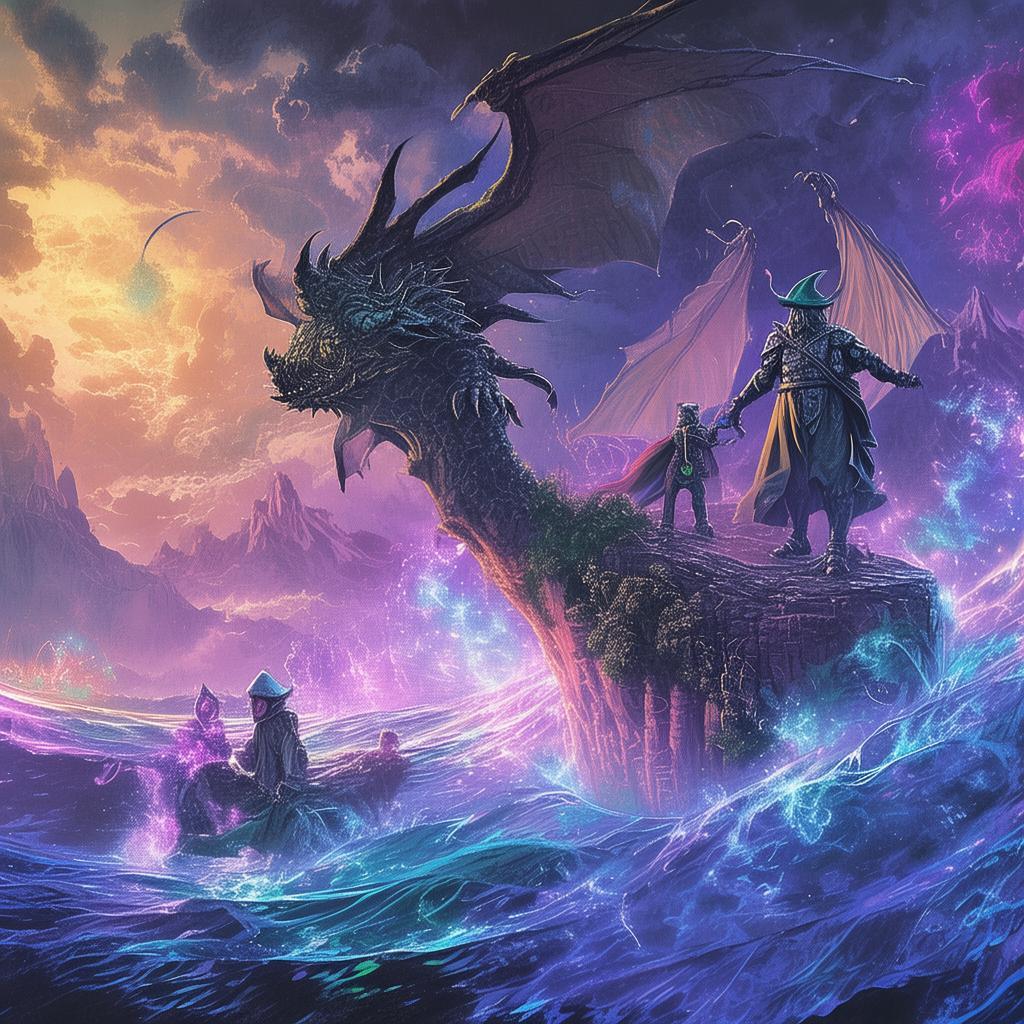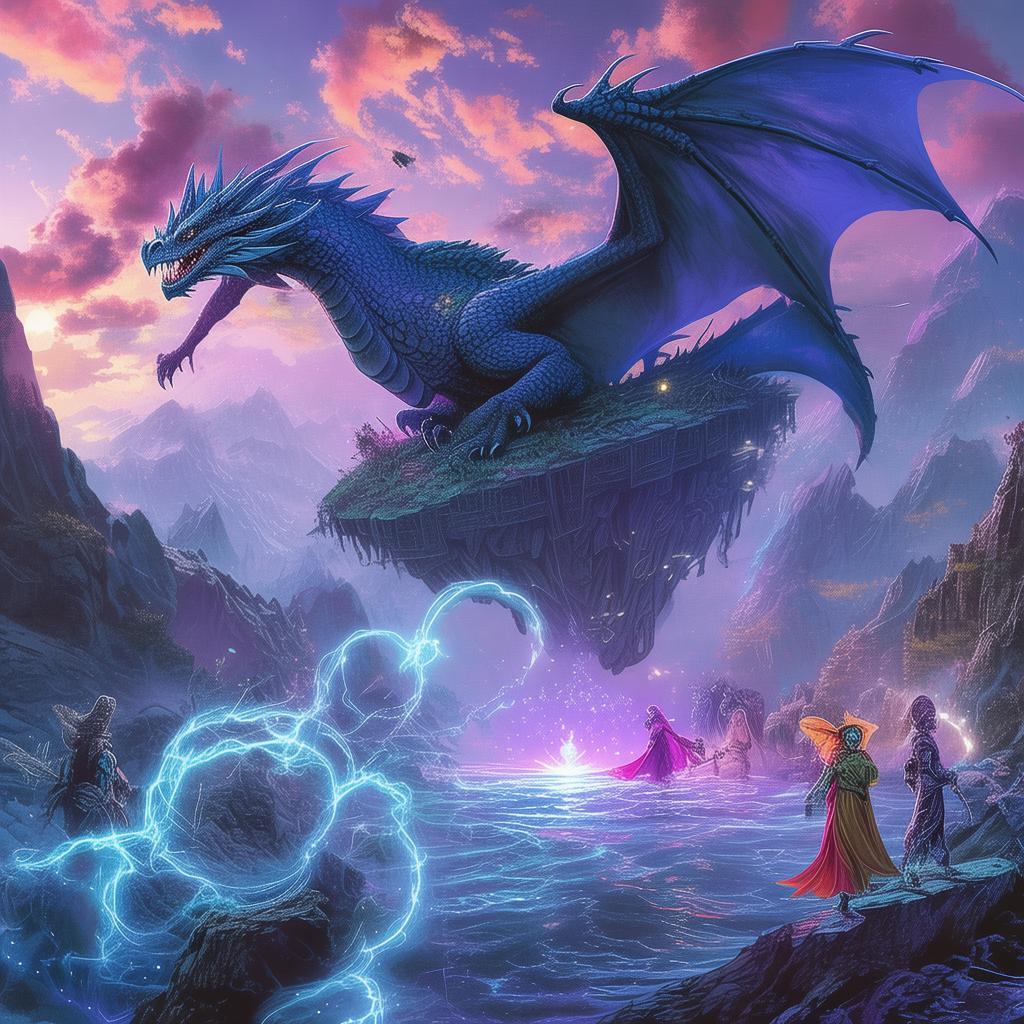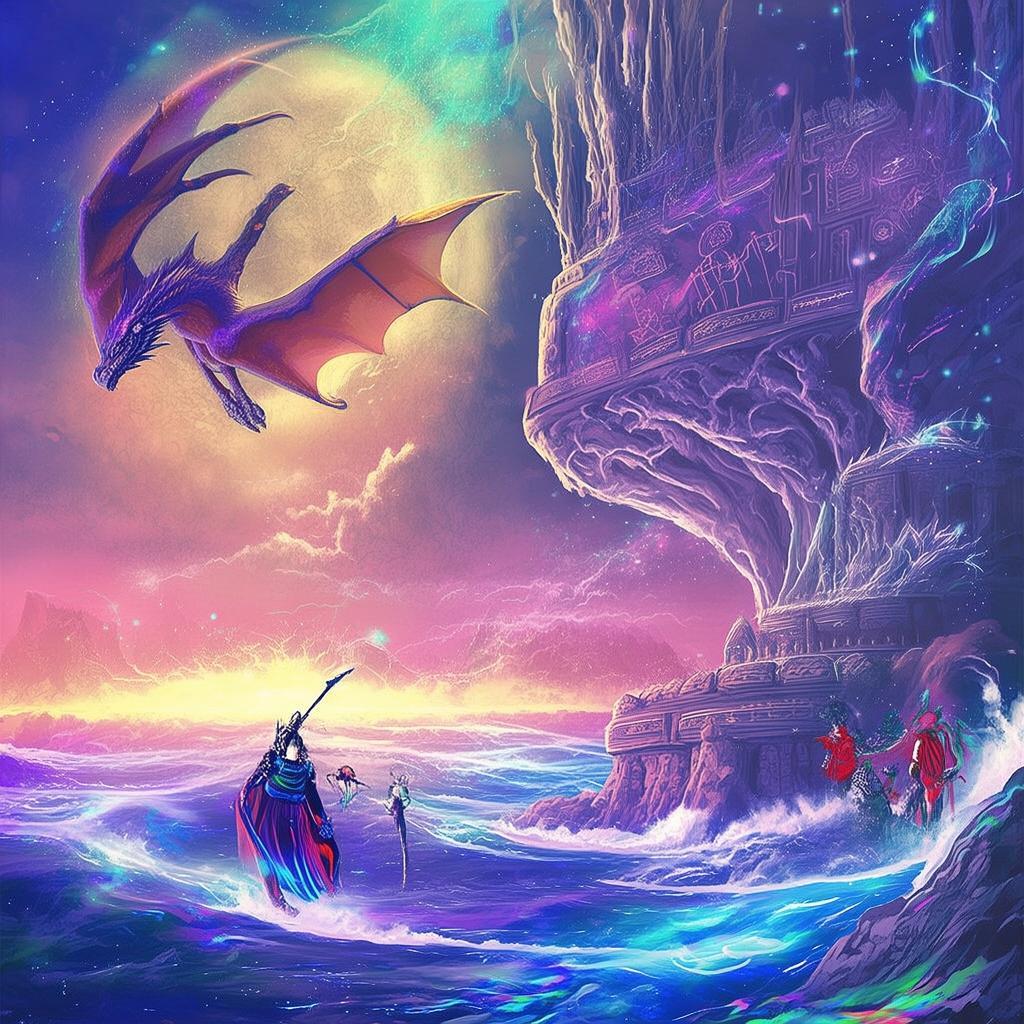Chronicles of the Time-Traveling Chef: The Last Supper of the Ancients
The air was thick with the scent of spices and anticipation. Chef Emile Duval stood before his open kitchen, the hearth crackling with the warmth of a thousand culinary histories. His hands were steady, the utensils in his grasp like extensions of his will, as he prepared what was to be the most significant meal of his life.
The recipe, an ancient scroll, had come to him in a vision. A vision that spoke of a time before the written word, where the art of cooking was an oral tradition, passed down from chef to chef, through generations and across the world. The scroll was said to contain the secrets of an eternal feast, a meal that could satisfy the hunger of the soul as well as the stomach.
Emile had been a chef for decades, a maestro of flavors, but this was different. This was about more than taste and technique; it was about the very essence of food, the way it could connect people across time and space.
He began by selecting the ingredients, each one meticulously chosen for its connection to the past. The tomatoes from the Aztecs, the wheat from the Egyptians, the garlic from the Greeks, and the spices from the Silk Road. Each ingredient was a piece of history, a story waiting to be told.
As the meal progressed, Emile’s kitchen transformed. The air was filled with the scent of incense and the sounds of distant music, the walls adorned with tapestries depicting the chefs of old. The kitchen was no longer a modern commercial space but a portal to the ages, where the past and present danced together in a harmonious culinary ballet.
The first course was a symphony of flavors, a fusion of tomato soup with a hint of cumin and cilantro, reflecting the Aztec heritage of the ingredient. Each spoonful brought back memories of ancient civilizations, of battles won and lost, of love and loss, and of the enduring power of food to bring people together.
The second course, a dish of wheat bread with a rich, golden crust, told the story of the Egyptians, their ingenuity and the way they transformed a simple grain into a staple of life. As Emile broke the bread, a sense of community and shared humanity washed over the room, as if the ancient Egyptians were present in spirit.
The garlic, a simple yet powerful ingredient, brought the story to the Greeks. Emile’s garlic-infused chicken was a nod to the ancient Olympics, a celebration of the human spirit and the pursuit of excellence. The aroma of garlic filled the room, a reminder of the Greek philosophers who used the herb to inspire their thoughts.
The final course was the most anticipated, the dish that would determine whether the meal would be a legend or a mere tale. A dish of saffron-spiced rice, each grain a golden thread in the tapestry of history, a journey through the Silk Road and the spice trade that connected the East and the West.
As Emile served the final course, the room was silent, the air thick with tension and anticipation. He raised his spoon, and with a single word, "Amaretto," he poured the final ingredient into the dish. The amaretto was the secret ingredient, the essence of the eternal feast, the liquid that would bind all the flavors, the past, and the future together.

The first bite was like a time machine, whisking the diners away to a place where time had no meaning, where history was a shared memory, and food was the bridge that connected all of humanity. The flavors were intense, the taste of the dish was more than just the sum of its parts; it was the very essence of life.
As the meal ended, the diners remained seated, the flavors lingering on their tongues and in their hearts. Emile had achieved what he had set out to do, to create a meal that would transcend time, to be the last supper of the ancients.
But as the night wore on, Emile couldn't shake the feeling that something was missing. He returned to the scroll, searching for the final piece of the puzzle. There, etched in the margins, was a single word: "Legacy."
Emile realized that the eternal feast was not just about the food, but about the legacy it would leave behind. He knew that his life's work, his passion for cooking, would live on in the memories of those who had shared in the meal, in the stories they would tell, and in the chefs who would carry on his legacy.
As dawn approached, Emile stepped back from the table, his heart full and his spirit uplifted. He had created more than just a meal; he had created a moment, a snapshot in time, a testament to the power of food to bring people together, to connect them across the ages, and to leave an indelible mark on the world.
And so, the last supper of the ancients became the first meal of a new culinary era, one that would be defined by the endless possibilities of the past, the present, and the future.
✨ Original Statement ✨
All articles published on this website (including but not limited to text, images, videos, and other content) are original or authorized for reposting and are protected by relevant laws. Without the explicit written permission of this website, no individual or organization may copy, modify, repost, or use the content for commercial purposes.
If you need to quote or cooperate, please contact this site for authorization. We reserve the right to pursue legal responsibility for any unauthorized use.
Hereby declared.









